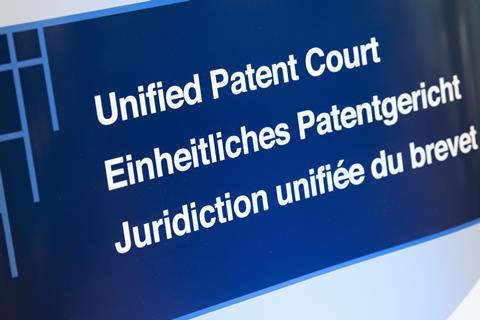Europe's Unified Patent Court (UPC) handled 15% of European patent cases in its first year of operation despite publishing figures suggesting double that number, according to analysis by IP specialists. Nicholas Fox, partner IP firm Mathys & Squire, said that it is too early to tell whether the court will achieve the ambition of becoming Europe's primary court for patent litigation.
The UPC, to which 17 EU states are currently signed up, claims to have received 373 cases in the year since it opened in June 2023. However Fox said that this total was reached by counting every single claim relating to a patent. A more realistic count is 205, Fox said. This is made up of 134 infringement cases, 39 revocation actions and 32 provisional measures actions.
While this figure is 'significant', it should not be overstated, Fox said. Caseload is still dwarfed by that handled at national courts: in 2021, a total of 1,275 patent law cases were heard in the UK, Germany, France, Italy and the Netherlands combined. Germany alone heard 841 patent cases that year, Mathys & Squire said.

The UPC's opening was plagued by delays including those caused by Brexit - the UK government ruled out membership in 2020, declaring it 'inconsistent with our objective of becoming an independent self-governing nation' - and a long-running challenge in Germany’s constitutional court.
Despite the UK's absence, 50% of proceedings were conducted in English. German is the second most commonly used language, with 44% of cases. French, Italian and Dutch account for 2% each.
Fox said that, as very few UPC cases have yet to reach any form of conclusion it will be some time before its jurisprudence resembles anything approaching a settled state. 'It will not be until settled practice begins to develop through a substantial body of decided cases or cases are referred to the UPC Court of Appeal that the approach of the new court to substantive patent law is likely to become clear.'



























No comments yet